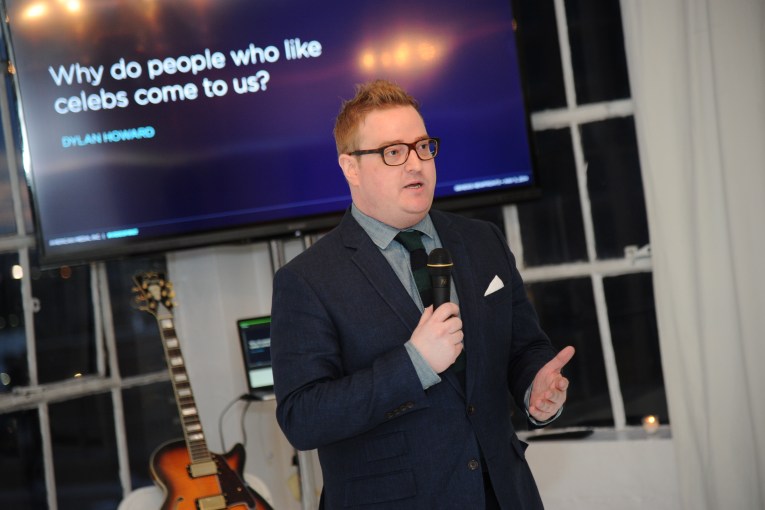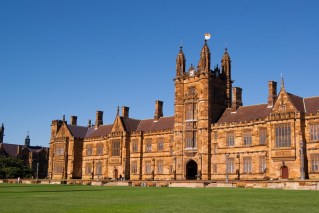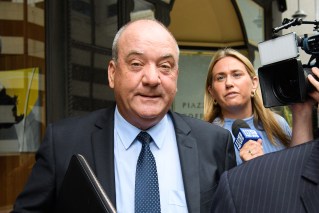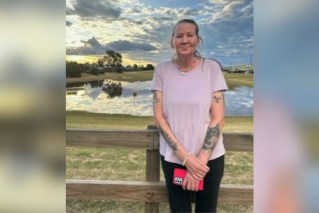Why isn’t Ned dead? The Australians we still believe in

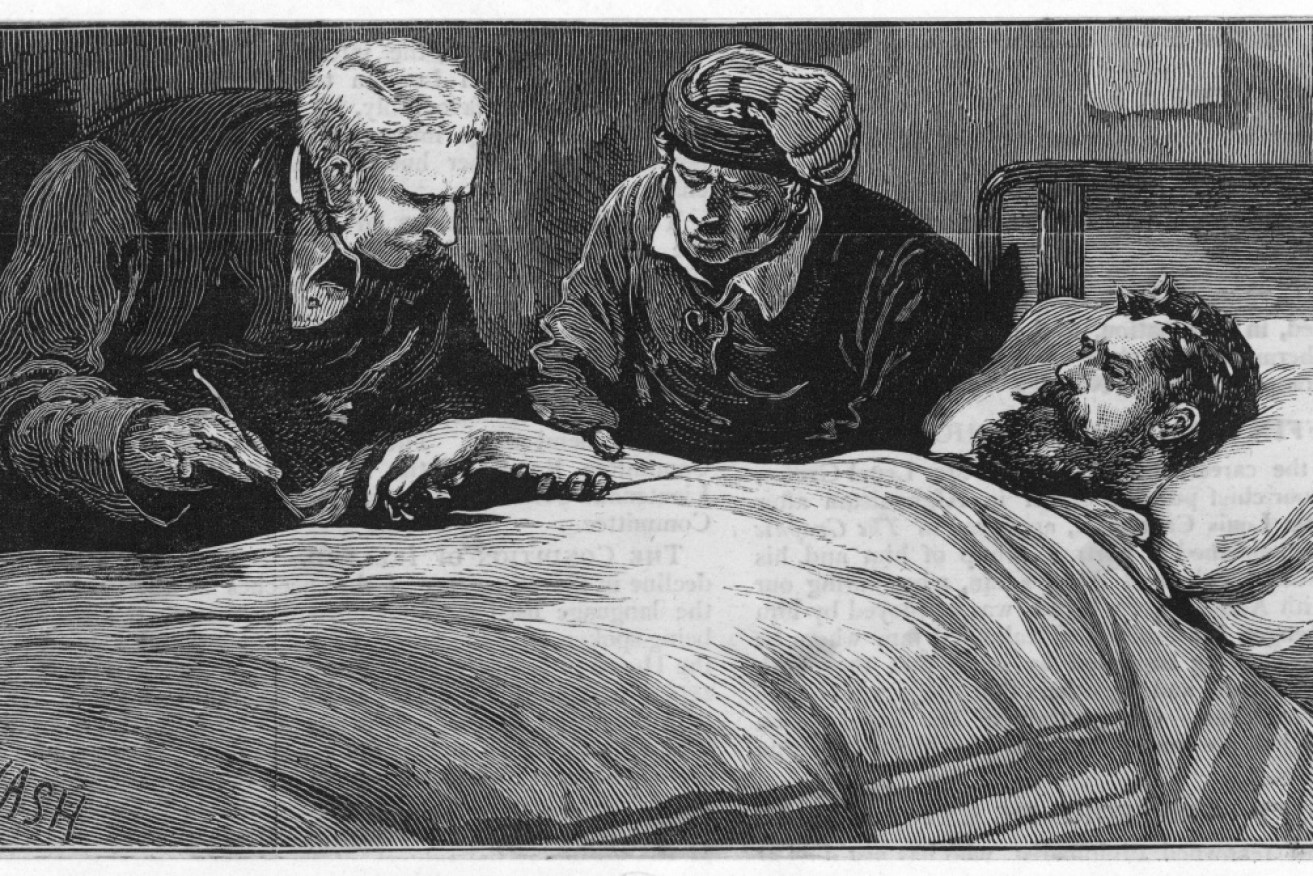
An engraving of Ned Kelly being examined by doctor's at Melbourne gaol. Photo: Getty/Mary Evans picture library
Brooding songster Nick Cave and actor son Earl were seen making a recent pilgrimage to the State Library of Victoria to gaze – as do hundreds of thousands of visitors every year – upon the armour in which Ned Kelly made his last stand at Glenrowan.
Alongside the likes of Russell Crowe, Earl Cave is playing Dan Kelly– who died in the siege – in the 16th film to be made about the Kelly gang. A 17th “definitive” version is also in the pipeline if director Matthew Holmes can raise the cash.

Ned Kelly’s armour on display at the State Library of Victoria. Photo: Getty
IF Magazine recently asked: “How many Ned Kelly movies are too many?’’ A better question might be – in this age of aggressively positive role models, and erasing the nasty side of history – how has a cop-killer endured, with much love, as a figure of ‘national importance’?
Social scientists have been asking the same question.
According to a 2014 paper in the Journal of Sociology, Ned Kelly ranks 15 in a list of the 20 most important Australians, living or dead. University of Tasmania researchers Bruce Tranter and Jed Donoghue drew upon survey data from the 2011 Australian Survey of Social Attitudes. They were seeking to find who Australians consider to be their icons.
Mercifully only one sportsman – Don Bradman, of course – made the cut. The Don was No.7, just behind Weary Dunlop and ahead of … Dick Smith!
Anyway, at No.10 was Mary McKillop, a saint. The only other woman named was Julia Gillard at No.17. No Kevin Rudd, but the generic term “Prime Minister’” ranked 19.
Professor Tranter wouldn’t be drawn into a conversation with The New Daily, but he sent us all three of his Kelly-related research papers, including Ned Kelly: Armoured icon from 2010.
Tranter found that “younger, left-leaning, working-class Australians and consumers of popular culture” view Kelly as important. Tertiary-educated, political conservatives “tend to downplay his significance”.
Common sense says it’s the consumers of popular culture that win out.
But why Kelly? In part, because there was no one else so winningly iconic.
Professor Tranter writes: “The lack of foundation heroes in a nation built not only by free settlers but also by English convicts and Irish rebels goes some way to explaining why a 19th-century outlaw is one of the few historical figures recognised by a majority of Australians.’’
But there is stiff resistance. Doug Morrisey’s book Ned Kelly: a Lawless Life was shortlisted for the 2016 Prime Minister’s Literary award. Soon after, Dr Morrisey accused the Australian government of celebrating Kelly as a hero, rather than damning him as a murderer.
In a letter to PM Malcolm Turnbull, Morrisey complained the Australia.gov.au website entry on Ned Kelly was biased and sympathetic to Kelly – and he demanded “the errors of fact to be corrected and a more even-handed approach taken”.
This led to a headline in The Daily Telegraph: “Ned Kelly isn’t an icon, he’s a failure”.
Too late, surely. Remember the comically dancing Neds at the Sydney Olympics?
Tim Hogan, Manager of Collection Development and Discovery at the Victorian State Library, agrees that the sympathetic view of Kelly could do with some correcting. “It’s remarkably light-hearted and trivialised in many contexts, when you look at the facts of the case you’re talking about people being shot and killed.’’
On occasion, said Mr Hogan, he’s been asked by a visitor “why have you got a cop killer on view?”
Hogan said there is a slow move toward balancing the story – but says the story may not be the point. He said it’s the armour, the image, the great dressed-up moment that people think of. And perhaps this is what makes Ned Kelly immune in a changing world where centuries old paintings are taken off gallery walls because the nude models were exploited, where Confederate statues are being taken down and Captain Cook defaced.
Hogan said it was possible that one day Kelly might become politically incorrect – but he’s not betting on it.
“There’s just too much money in it,’’ he said, meaning the steel helmet, and the souvenir outlaw’s corny cache.
Dr Dale Blair is the author of Dinkum Diggers and an historian with an interest in myth-making. “I don’t think Ned’s in danger; he’s become a cultural icon. He means different things to lots of people. His purported last words, ‘such is life’, are tattooed across the back of every biker in the country.’’
Dr Blair believes that as Australia becomes more of a nanny state, Ned will be even more appreciated as the ”representative of not taking it from the man”.
Blair also believes the revisionist crowd – who believe Ned was a bad man – won’t cut through.
“Because people aren’t interested in that story. Even if it’s true.’’

